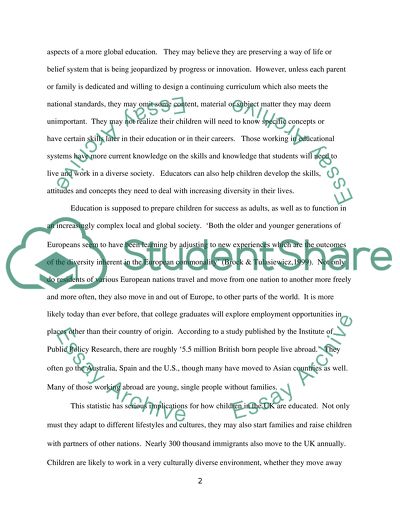Cite this document
(Aspects of a Global Education Term Paper Example | Topics and Well Written Essays - 2250 words, n.d.)
Aspects of a Global Education Term Paper Example | Topics and Well Written Essays - 2250 words. Retrieved from https://studentshare.org/education/1564922-position-paper-develop-an-argument-for-who-should-decide-how-and-what-children-are-taught
Aspects of a Global Education Term Paper Example | Topics and Well Written Essays - 2250 words. Retrieved from https://studentshare.org/education/1564922-position-paper-develop-an-argument-for-who-should-decide-how-and-what-children-are-taught
(Aspects of a Global Education Term Paper Example | Topics and Well Written Essays - 2250 Words)
Aspects of a Global Education Term Paper Example | Topics and Well Written Essays - 2250 Words. https://studentshare.org/education/1564922-position-paper-develop-an-argument-for-who-should-decide-how-and-what-children-are-taught.
Aspects of a Global Education Term Paper Example | Topics and Well Written Essays - 2250 Words. https://studentshare.org/education/1564922-position-paper-develop-an-argument-for-who-should-decide-how-and-what-children-are-taught.
“Aspects of a Global Education Term Paper Example | Topics and Well Written Essays - 2250 Words”, n.d. https://studentshare.org/education/1564922-position-paper-develop-an-argument-for-who-should-decide-how-and-what-children-are-taught.


